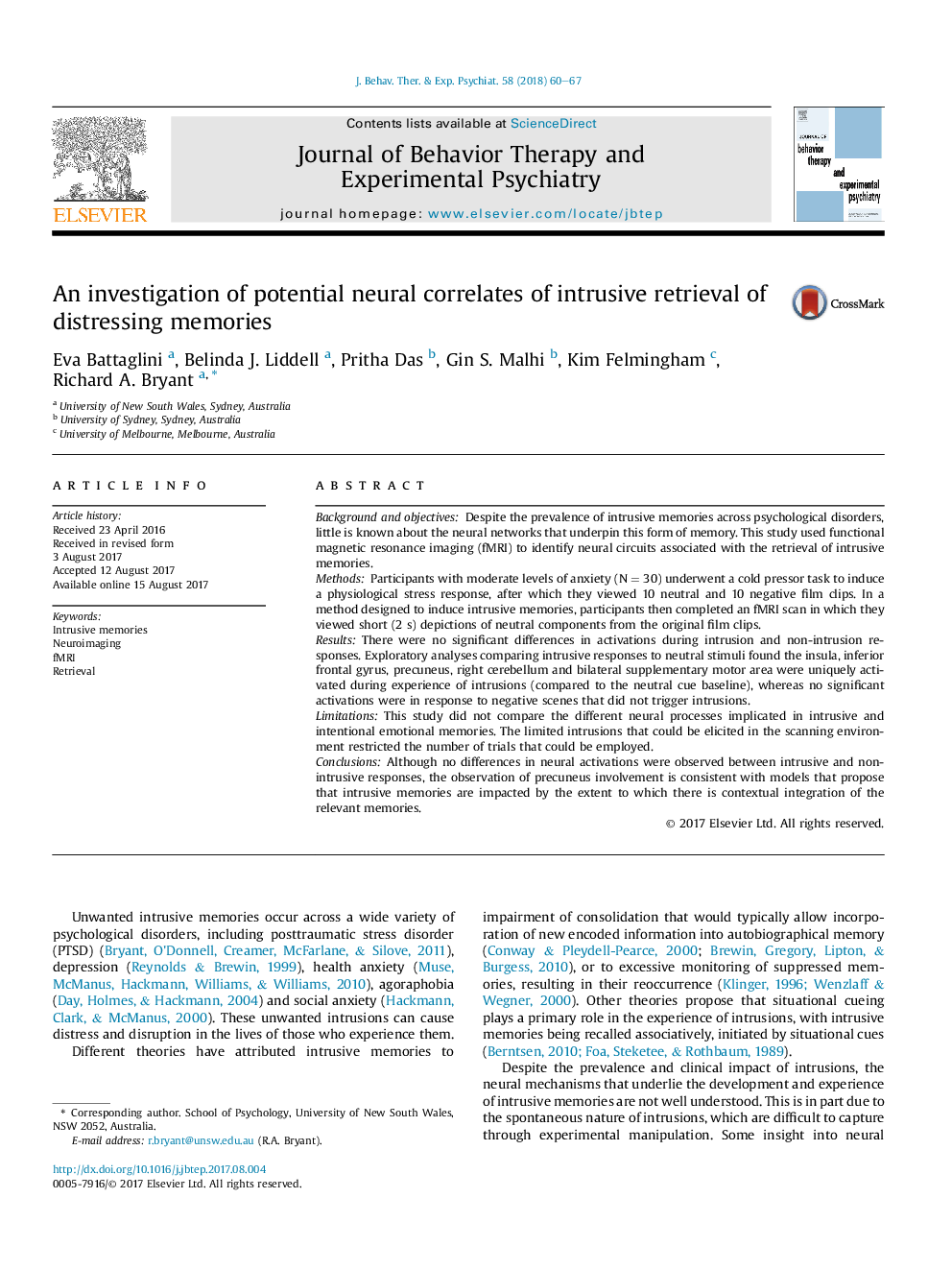| Article ID | Journal | Published Year | Pages | File Type |
|---|---|---|---|---|
| 5038968 | Journal of Behavior Therapy and Experimental Psychiatry | 2018 | 8 Pages |
â¢Models of posttraumatic stress disorder (PTSD) propose that intrusive memories underpin the condition.â¢There is insufficient evidence of the neural circuits implicated in PTSD.â¢Insula, inferior frontal gyrus, and precuneus activations were associated with intrusions.â¢Findings support neural models of intrusive memories in PTSD.
Background and objectivesDespite the prevalence of intrusive memories across psychological disorders, little is known about the neural networks that underpin this form of memory. This study used functional magnetic resonance imaging (fMRI) to identify neural circuits associated with the retrieval of intrusive memories.MethodsParticipants with moderate levels of anxiety (NÂ =Â 30) underwent a cold pressor task to induce a physiological stress response, after which they viewed 10 neutral and 10 negative film clips. In a method designed to induce intrusive memories, participants then completed an fMRI scan in which they viewed short (2Â s) depictions of neutral components from the original film clips.ResultsThere were no significant differences in activations during intrusion and non-intrusion responses. Exploratory analyses comparing intrusive responses to neutral stimuli found the insula, inferior frontal gyrus, precuneus, right cerebellum and bilateral supplementary motor area were uniquely activated during experience of intrusions (compared to the neutral cue baseline), whereas no significant activations were in response to negative scenes that did not trigger intrusions.LimitationsThis study did not compare the different neural processes implicated in intrusive and intentional emotional memories. The limited intrusions that could be elicited in the scanning environment restricted the number of trials that could be employed.ConclusionsAlthough no differences in neural activations were observed between intrusive and non-intrusive responses, the observation of precuneus involvement is consistent with models that propose that intrusive memories are impacted by the extent to which there is contextual integration of the relevant memories.
